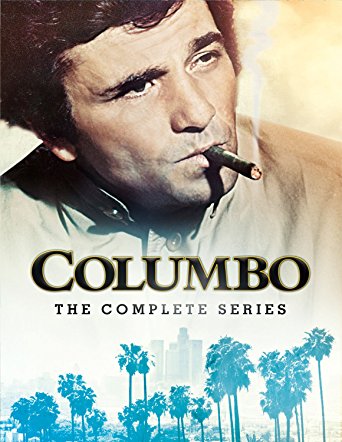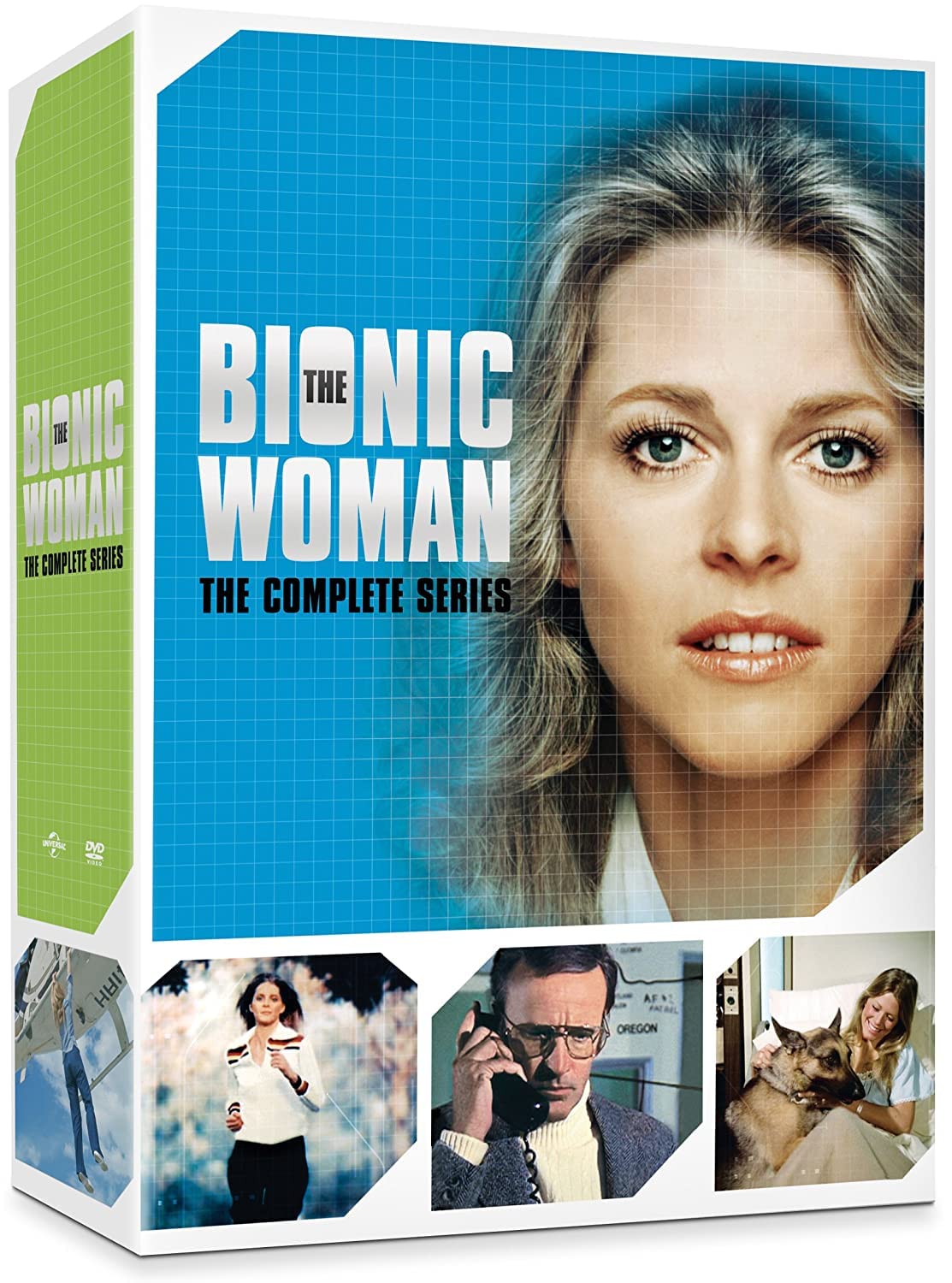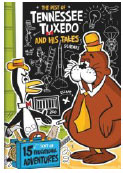
you're looking
for is right here:
Save money!



 |
Everything
you're looking for is right here: Save money! |
 |
 |
 |
||
|
PART
TWO: by L. WAYNE HICKS LWH: When I did a search for your name on the Internet, I came up with the Monty Hall three-door problem. Monty Hall: Oh, yeah. That started with an article in Parade magazine: if Monty Hall offers you one of the three doors and one's got a car and two others have goats and he shows you one of the ones that has a goat and you're left with yours that you've selected and an unseen one, should he give you the opportunity to trade again for the unseen one, you should trade. Well, when that was brought to my attention I said, "What difference does it make?" I never could understand what difference it makes. You make your selection. It's either the one that you've got or the one that's unseen. I got a call from a New York Times writer. He said, "I want to talk to you about this Monty Hall problem." He came over to my house. He said, "I want to prove to you that you should trade. If they give you a chance to trade, you should trade for the unknown and it works. I don't understand it but it works." He printed it, two weeks later, the Sunday New York Times, the front page. It started off with an article on the front page; it continued on an interior page. An entire page turned over to this thing. Every college professor in statistics has contacted me. Some are saying it's true. Some are saying it's not true. Others say "I've proved it." Others say "I can't prove it." But it's been going on for years now. LWH: What's the answer? Monty Hall: The answer is don't give them a chance to trade. Once they make their decision, play it out. LWH: It was totally random, wasn't it? It wasn't like the curtain was always the best choice? Monty Hall: No, no, no. You could not afford to be predictable. I ran into judges of the state appeals court who said to me, "I watch your show every Saturday night" - when it was on in the evenings. He said, "I always pick the right door." I said in my best Dickensian tongue, "Balderdash." Because you couldn't predict if I gave you 100 choices. Do you think we're stupid, that we're going to put it behind door No. 2 each time? We juggled the door, we juggled the prize behind: 1, 3, 2, 3, 1 and it keeps you off balance. You can never predict what's on the show or in the box. That's the secret. Those people who tell you "I always pick the right door," those are the same people who always tell you how many answers they got on Jeopardy. LWH: People who got stuck with the "zonks," the joke prizes, were they good-natured about losing out? Monty Hall: In 4,700 shows, I got kissed 50,000 times. Even when they lost, they were very nice about it. But you know the law in game shows - if you go on a show and you win a donkey, that's your prize. You're entitled to it. So if a person won one of our zonks, they could take it home. But in 99 percent of the cases, we would offer them something after the show - a washer and dryer or a color TV or something, instead of that very valuable zonk, and they would take it. In 1 percent of the cases, they didn't. There was a time when a farmer won five calves and he wanted the calves. That cost me a fortune because when you rent them from the animal place, they're expensive. And there were other cases like that. Like people won dogs; they would keep dogs. They wouldn't keep cats. They would keep dogs. It was a very genial atmosphere, over 27 years. LWH: In the past people have criticized "Let's Make a Deal" for being about greed and you have said no, it's really about risk. Is that correct?
LWH: It could have been anything. Monty Hall: Yes. Except in the Big Deal, we would say behind one of these three doors is $10,000 in prizes. But that's all we would tell them. They never knew what they were going for. LWH: I always enjoyed the end of the show when you would offer people money for strange items. Monty Hall: Right. We called them the quickies. LWH: Did you know going out in the audience you would ask for, say, a paperclip? Monty Hall: Well, I had a whole array of things I could ask for. Sometimes I had to invent some as I was going along. That last three minutes of the show was sometimes every bit as exciting as giving away a car. If they could fool me by producing a paperclip or a ball or a hard-boiled egg, they put one over on me as it were. The reaction from the audience from that person getting $200 for producing that hard-boiled egg was just as big as they gave me for the new car that was won just five minutes prior. I think there was a time when I said, "I'll give you $20 for every dime you have" and the person pulled out a roll of 40 or 50 dimes and he got $1,000. The excitement of that audience, that roar, you could have heard three blocks away. It's the time you pulled one over on Monty: "I had what he was asking for." LWH: Did people produce things that just surprised you? Monty Hall: Not surprised, because they came with baskets full of stuff, purses, huge purses full of stuff. When I asked for something and they couldn't find it right away, they'd empty the purse on the steps and they'd be searching through all the stuff. "I know I've got it here. I know I've got it here." Those were fun parts. LWH: Did things sometimes go wrong? Monty Hall: Oh, yeah, sure, when curtains open up when they shouldn't. When doors open up when they shouldn't. Here's a classic case. You say to the person, "You have a bedroom set" or whatever it is. "Do you go for door No. 3?" Before the person could make up their mind, the stagehand opened up the door by mistake, and there is a brand new car. Everybody's yelling and this guy's looking stunned. I looked at him and I said, "Hey, that's our mistake. You want to trade the bedroom set for the car?" He says, "Do I?" We didn't stop the show. We made a mistake. We goofed. He gets the car. That happened two or three times, at least. LWH: Why did it end? Why did it go off the air? Monty Hall: I had done the show 4,700 times. I went backstage and said to the crew and everybody, "You know I said to you there will come a time when I just didn't want to go out there one more time." I was beginning to hear the same ad-libs coming out of my mouth over and over again. How fresh can you be? How many things can you say to a person dressed like a chicken? There comes a time when the repetitive situation gets to you. I said, "And I think the time is now." And that's when we decided to pull it. LWH: Was it hard to walk away from it? Monty Hall: No, it wasn't. If you've lived your life in a studio for 27 years, you like to have a life of your own. That's why to this day if people call me to go back and do a show I say I do not want to spend any more time in a studio. There's a life out there. I've spent half of my life in a studio. I've got a wife, I've got children, I've got grandchildren. I like to play tennis and golf. There's a life out there. Half of my life is charity work. I've been doing this charity work all over the country, all over Canada and the United States. I would race away from the studio, go to Philadelphia, do a telethon, come back, race back to the studio. The wear and tear on you is tremendous. I'd have helicopters waiting to pick me up here to take me over here to be there at the studio on time. Well, it's kind of exciting when you're in your 40s; it's not exciting when you're in your 60s. LWH: Was that the hardest part of doing the show: the constant demands of being there? Monty Hall: I think so. See I didn't mind the ad-libbing. I loved it. I always prided myself on being able to carry a show, keep the pace going and keep the ad-libbing going. But the demand of having to do it time and time, taping three shows a day, keeping it fresh. You're running up and down the stairs. You have to be physically fit too. You're running, you're running, you're jumping. It was the television decathalon. LWH: How do you think Let's Make a Deal influenced other game shows? Monty Hall: Well, we've had people poach on us, taken some of our ideas. I won't name them. I don't want to get into a fist fight with some of these guys, but they did. Not too successfully. Some of them did, but not too successfully. But they still do. They still show up at the networks with ideas and someone will say to me, they came to me and it was a steal right out of "Let's Make a Deal". You can't stop that. The best you can do is copyright your name and "Let's Make a Deal" and hope for the best. LWH: You did not set out to become the host of a game show. Originally you were planning on becoming an actor? Or actually before that a med student. You were going to be a doctor. Monty Hall: Before that, before college, I was a child actor in certain plays and through high school. Then when I got into college I had the lead in musical comedy. I continued the musical comedy while I was in my undergraduate years. I got recruited to do radio drama. That was very exciting for me. Through the radio drama I got a job as an announcer at the radio station where I worked nights while I was going to college. I found myself, while I was applying for medical school, I also found that I was making $40 a week at night and my father was making $25 a week at his meat market. So I thought to myself, forget about everything else. Let's make money and put my brother through college and help my folks. That's how I got rerouted. LWH: When did you know that you could make a living at acting? Monty Hall: Well, I didn't know if I could make a living in acting so much. I graduated, with my bachelor of science degree and no longer interested in medicine, I went to work full time at the radio station. My boss after nine months urged me to leave Winnipeg and go to Toronto, which was the big time in Canada. I went to Toronto not knowing whether I was going to be an announcer or an actor or a sportscaster or what. It wasn't easy trying to find a niche. You go into a city people aren't exactly waiting for you. There are no ads in the paper: looking for a big star. So you go there and you scratch around until you find where you fit in. I did it all. I did sportscasting. I did announcing. Very little acting, because I found out the shows already had their touring company, they had their set stars and they didn't need any new people. So then I would go from acting to announcing and man on the street broadcasts and that stuff as well as sportscasting. The acting really went out of my portfolio at an early time. From that point on, I was trying to gear myself into avenues that I could be successful in and that was the ad libbing emcee, the man on the street broadcaster, the host of a game show, a sportscaster, and so I moved into those areas. I really didn't come back into acting until I came out to the West Coast many years later and because of my stardom in another field I was hired to do many acting jobs. But only because they wanted to see Monty Hall. LWH: They weren't interested in seeing Laurence Olivier. They wanted you to play yourself? Monty Hall: If I could tell you how many shows I've turned down playing Monty Hall. I'd say to them no. Is there a part for me? You're calling me. What is the role? Well the role is of a game show MC. I said forget it. I did a few as myself, but actually that was Monty Hall's coming on the show, Monty Hall's going to be here today, that kind of thing. I did a movie where I played an Air Force general and a few other things, but the acting slipped out of me. I didn't want it anymore. There are only so many things you can do with your life and between my family and my charity work and my game shows and so on, my ego didn't carry me any farther. I was satisfied.
Monty Hall: For one year. LWH: Why did you decide to bring it back? Monty Hall: I got a call from Dick Clark. And Dick Clark says, "I have clout with NBC. Do you want to let me be your partner? I'll bring Let's Make a Deal back." Well, I had no interest at that time. I said OK. He wanted to emcee it. I said fine. So I sent him 10 tapes over to his house and he looked over the weekend and he said, "I can't do this show. It's too tough." We still sold it to NBC. We auditioned 95 different people over three months and we selected one. We made a deal with Disney World and Disney built us a whole set down in Disney World and we did the show there. After 13 weeks, NBC called me and said, "This guy ain't working out. You'll have to take over the show." I did not want to hear those words because I had already done 4,500 shows. I didn't want to do anymore. I commuted between Los Angeles and Disney World for the next three months. I did not like that at all. Finally NBC said, "Well, we'll renew with you for a certain period, not for a year but for a few weeks." Disney got into the act. They said, "You can't renew for a short period. We put a million dollars into this set." And I said, "We don't want to give you a guarantee." The next thing I heard, my stage manager called me from Florida while I was still in LA. He said, "Hey, boss do you hear that noise in the background? They're tearing down the set." You couldn't monkey around with Disney. It was over. NEXT:
Part Three of the interview with Monty Hall MONTY HALL INTERVIEW: PART ONE / PART TWO
|
L. Wayne Hicks is a Denver-based writer and student of popular culture. He is completing his first book, the story of the TV show Romper Room.
Please consider a donation
so we can continue this work!
Amazon Prime - unlimited streaming PR4 & PR5 Pages for Advertising
1970's Game Shows: 1950's Game Shows: What's My Line / Kay Kyser's Kollege of Musical Knowledge TV
on DVD
|
Save money! |